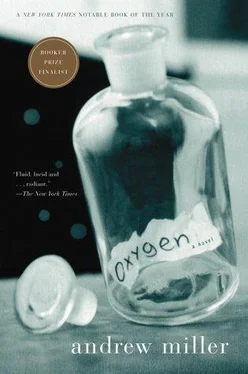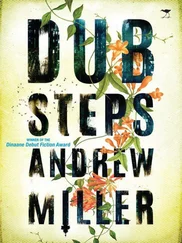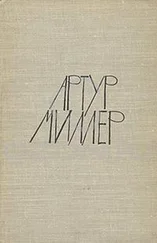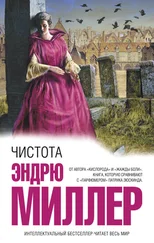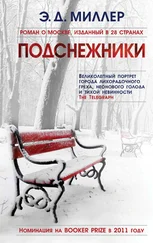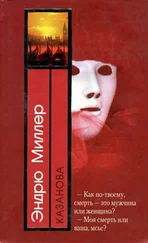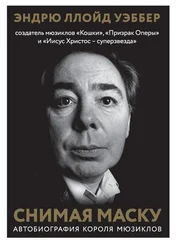And if Una had not been there? This was unanswerable. How swift and calm she had been! And when the fits went on, that shuddering that seemed to require such a terrifying effort, she had sent him into the kitchen to call for an ambulance, which they had followed in her car while she explained to him that an attack like this was not unusual ‘in a case like your mother’s’; that she had half expected it, and he was not to be frightened. It nearly always looked worse than it was.
At the hospital they took her into A&E. He had a last glimpse of her as the porters wheeled her into an assessment ward, her arm already connected to a drip bag, her body covered to the neck in a red blanket. Una went with her, and another nurse pointed Alec towards a bench in the corridor opposite some posters about smoking, flu jabs, condoms. He sat down and waited, watching patients shuffle by in their dressing gowns, unshaven older men most of them, peering towards the exits as if still hopeful some friendly face would appear and tell them it was time to get dressed. A woman with a trolley of overused books hurried past, and several ill-looking doctors, younger than Alec, stethoscopes draped round their necks like sacred snakes. Behind the curtains to Alec’s left a child was crying and would not be comforted.
Weirdly, after half an hour, he had fallen asleep, perfectly upright on the bench, and was woken by Brando gently shaking his shoulder, and then leading him to a quieter, more orderly section of the hospital where he had his office, a plain, functional room, not at all grand, with Venetian blinds at the window, and on the desk a photograph of a young man receiving some honour or accolade.
‘You must have had a shock,’ said Brando, perching on a corner of the desk. He was beautifully dressed.
‘Yes,’ said Alec. He had not thought of it like this but it was true. He felt he had witnessed something savage, like a beating.
‘I’m fond of your mother,’ said Brando. ‘She’s a very courageous woman.’
‘I know,’ said Alec. He wanted to get this over with. He couldn’t stand the thought that he might make a fool of himself in front of this man. Might be offered a tissue from the box on the desk.
‘We’ll keep her in for a while. Perhaps persuade her to start a course of radiation therapy, though naturally, it’s her decision. I’ll give you a call once we’ve got her settled. Then you can come in and see her. How’s that?’
In the evening Una called at Brooklands on her way home. They sat in the kitchen as the light went down and she had tried to comfort him, hinting that she could arrange for something that might help him manage. A prescription. Tablets. She had even – very briefly – held his hand, as though inviting him to unburden himself, but though it had tempted him, he had not known where to begin, what form of words, and so had kept up an exhausting and imbecilic denial. ‘I’m fine now. Absolutely fine. Thank you.’
As soon as she left he masturbated in the downstairs toilet for the sheer physical shock of an orgasm, then slept, dreamlessly, curled on the end of Alice’s bed. In some reach of the night the phone had rung but he didn’t answer it. The next day he rose early, busying himself with small tasks, throwing out dead flowers, sweeping the terrace. He found a jar of beeswax and spent nearly two hours rubbing it into the dining-room table until his fingers ached. He made lists. Hand-washed a pair of his shirts.
When he could think of nothing else, he went out to the car and sat there with the keys in his hand, staring through the windscreen at shadows that hung like phantom laundry from the trees lining the drive. It was the same on Friday, though then he had gone out to the car three or four times, even starting the engine and letting it idle for a while before he switched it off again. In his head, time moved with the starts and silences of a faulty machine. He did not wind his father’s clocks and they began to chime more erratically. Some had stopped altogether. The house grew stiller.
Osbourne startled him, tapping on the glass of the summerhouse window. For a moment they peered at each other like utter strangers. Then Alec came out and they shook hands.
‘Have I come at an awkward time?’ asked the reverend. The rain had stopped, and on the shining lawn the bric-a-brac from the summerhouse was like a small exhibition illustrating the past. There was, for example, the type of old-fashioned Dutch hoe his father had used in the garden at Meer. The reverend silently greeted it.
‘I saw your mother this morning,’ he said. ‘Much more her old self.’
‘Did they say when she can come back?’
‘Not exactly. But not long. A few days, perhaps.’ He looked for somewhere to sit but the bench had puddles of rainwater on it, and there was nowhere else. He thought: how miserable he looks, poor devil. Shifty too.
‘Larry will be here soon,’ said Alec.
‘Splendid.’
‘The day after tomorrow.’
‘You’ll meet him at the airport?’
‘Yes.’
‘Heathrow, I imagine.’
‘Yes. The early flight.’
With his handkerchief, Osbourne cleaned the sweat from his face. He didn’t care for running. ‘And how are you ?' he asked.
‘I’m OK,’ said Alec.
‘Keeping yourself busy?’
‘There’s a lot to do.’
‘Is there? I suppose there is. The house. The garden. Your work, of course. Making some progress?’
‘A little.’
‘Lázár, isn’t it?’
‘Yes.’
‘I’ve certainly heard of him.’
‘They didn’t say when she would be back, then?’
‘The doctor’s making his rounds on Monday. With a bit of luck he’ll give the green light then.’ The reverend nodded, squinting at things quite randomly. It was foolish of him to have come without a plan, and now he was unsure how to go on. ‘The thing about faith,’ he began, quietly addressing a spider’s web that glittered and trembled with raindrops, a thing of fabulous intricacy under the eaves of the summerhouse, ‘is that it doesn’t have to come all at once. Road to Damascus, et cetera. You can believe for a morning. Or an hour, if that’s all you can manage. It doesn’t matter.’
‘Sorry?’ said Alec.
‘All I mean is that saying a prayer can help. It’s very natural when things are difficult. Some people think it’s hypocritical because they don’t pray when things are going well. But it’s perfectly all right.’
‘Don’t you have to believe that it will make some difference?’
The reverend paused. ‘Perhaps not even that.’ He pressed his hair into place with the flats of his hands. ‘We’re not alone,’ he said.
‘No,’ said Alec, feeling as he spoke the weight of his conviction that quite the opposite was true; that aloneness was what lay at the beginning and end of every argument. ‘Do you want some tea?’ he asked.
‘That’s very kind,’ said the reverend, ‘but I’ve decided to plant out my arum lilies today. If I see your mother first, any message for her?’
Alec shook his head.
‘Righto. I’ll tell her you’re keeping busy, then.’
They looked at each other; a silence that made evident both the purpose and the failure of their conversation. Then they shook hands again and the reverend made his way towards the stile that led from the garden back to the meadow. He had meant to say a few words about how even the worst situations had something salvageable in them, that the picture was never entirely black. The important thing, however, was that the elder boy was on his way. Things would improve then, somehow.
He looked up. The clouds now were slashed with a blue as clean as starlight, and he smiled, feeling the grateful inhalation of his soul. It was hard to believe there could be any atheists in Somerset, and by the time he was halfway across the meadow, his coat flapping over his arm, he had quite forgotten his dreams.
Читать дальше
